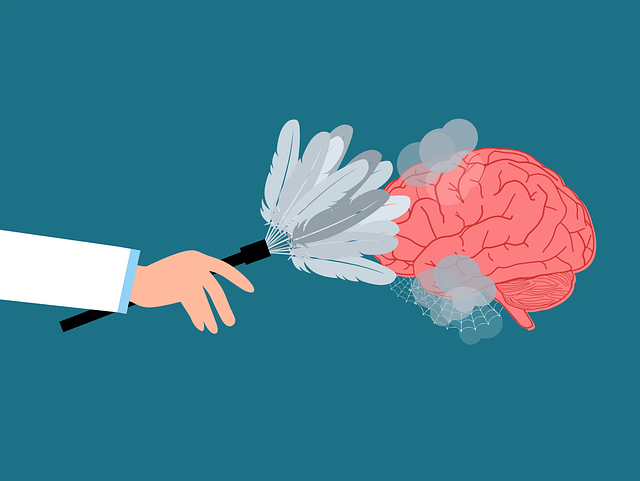Advocating for improved mental health services requires understanding policy, as highlighted by Lafayette Adolescent and Teen Therapy (LATT). By analyzing existing legislation and employing evidence-based practices like Mental Health Education, Resilience Building, and Burnout Prevention, advocates can drive change. LATT's specialized therapy and Compassion Cultivation Practices offer valuable insights into effective interventions for adolescents. Their collaborative approach, including Stress Management Workshops, is crucial for shaping compassionate mental health policies tailored to young people's needs and challenging stigma through open dialogue.
Mental health policies are pivotal in shaping support systems for individuals grappling with psychological well-being. This article delves into a comprehensive analysis of mental health policy, highlighting its significance through the lens of advocacy. We explore how organizations like Lafayette Adolescent and Teen Therapy play a crucial role in policy understanding and analysis, offering valuable insights to drive change. Furthermore, it provides practical strategies for effective mental health policy advocacy, emphasizing the impact on young adults’ overall well-being.
- Understanding Mental Health Policy: A Foundation for Advocacy
- The Role of Lafayette Adolescent and Teen Therapy in Policy Analysis
- Effective Strategies for Mental Health Policy Advocacy
Understanding Mental Health Policy: A Foundation for Advocacy

Understanding mental health policy is a cornerstone for advocates seeking to improve services and support for individuals grappling with psychological distress. Mental health policies guide service delivery, resource allocation, and access to care—all vital aspects that directly impact the lives of those in need. By examining existing legislation, regulations, and guidelines, advocates can identify gaps, inconsistencies, or areas requiring enhancement.
This knowledge becomes a powerful tool when coupled with evidence-based practices such as Mental Health Education Programs Design, Resilience Building, and Burnout Prevention Strategies for Healthcare Providers. For instance, advocacy efforts at the policy level could focus on integrating these strategies into school curricula to foster mental wellness among adolescents—a demographic that Lafayette Adolescent and Teen Therapy serves. Such proactive measures can lead to earlier interventions and better long-term outcomes.
The Role of Lafayette Adolescent and Teen Therapy in Policy Analysis

Lafayette Adolescent and Teen Therapy (LATT) plays a pivotal role in mental health policy analysis by providing valuable insights into the unique challenges faced by young individuals. As a leading therapy center, LATT offers specialized services tailored to adolescents and teens, addressing issues such as anxiety, depression, and trauma. Their expertise lies in integrating Compassion Cultivation Practices, which have proven effective in reducing stress and fostering resilience among this vulnerable demographic.
Through its comprehensive approach, LATT contributes to policy discussions on burnout prevention by highlighting the importance of early intervention and support services. By offering Trauma Support Services, they demonstrate how targeted interventions can significantly impact a young person’s mental health trajectory. This practical experience equips policymakers with evidence-based strategies, ensuring that mental health policies are informed, compassionate, and centered around the specific needs of adolescents and teens.
Effective Strategies for Mental Health Policy Advocacy

Mental health policy advocacy requires a multifaceted approach to drive meaningful change. Effective strategies involve building strong alliances with policymakers, community leaders, and mental health professionals. Educating stakeholders about the latest research and best practices in adolescent and teen therapy, such as those offered by Lafayette Adolescent and Teen Therapy, is essential. Engaging in evidence-based advocacy ensures that policies are informed by real-world impact and success stories.
Organizing and participating in Stress Management Workshops can be a powerful tool. These workshops not only raise awareness about mental health issues but also promote practical solutions like Emotional Regulation techniques and Stress Reduction Methods. By fostering open dialogue and sharing personal experiences, advocates can humanize the issue, challenge stigma, and build support for evidence-based policy interventions. This collaborative approach is crucial in navigating complex systems and achieving positive change in mental healthcare access and quality.
Mental health policy analysis and advocacy are vital components in ensuring comprehensive support for individuals’ well-being. By understanding the complexities of mental health policies, such as those facilitated by Lafayette Adolescent and Teen Therapy, we can effectively push for strategies that promote accessibility and quality care. Effective advocacy involves employing evidence-based approaches, engaging stakeholders, and utilizing data to drive change. Ultimately, these efforts contribute to a more resilient and supportive society, where mental well-being is prioritized and protected.














